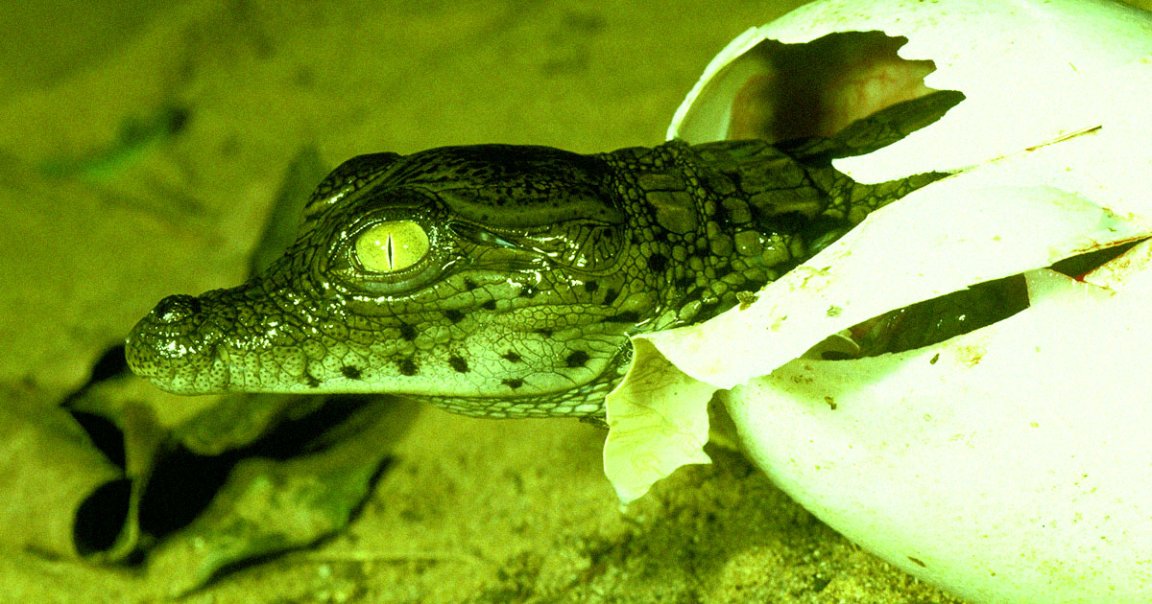
Crocodile Christ
Behold, the immaculate crocodile!
An international team of scientists has confirmed through genetic testing that an 18-year-old female crocodile housed at a Costa Rican zoo impregnated herself without a male mate — the first time that such a discovery has been recorded and studied, according to the researchers.
As detailed in a research article published in the journal Biology Letters, the baby croc was a 99.9 percent genetic match for its mother, meaning that no other crocodiles could have been involved in the conception of the hatchling.
Though the fetus was fully formed, the “virgin birth” crocodile was sadly stillborn and thus never actually hatched, according to the BBC. But it’s an exciting finding nonetheless, and one that researchers say might shed some light on the reproductive habits of crocodiles’ ancient dinosaur ancestors.
Croc Files
Surprisingly, this behavior — referred to within the scientific community as facultative parthenogenesis — isn’t rare within the animal kingdom, especially in animals with evolutionary links back to the age of the dinosaurs.
‘”We see it in sharks, birds, snakes, and lizards and it is remarkably common and widespread,” Virginia Tech entomology professor Warren Booth, who led the study, told the BBC.
And importantly, Booth also thinks this likely isn’t the first case of parthenogenesis in crocodiles ever — just the first one on record that humans have sought out and paid attention to.
”There was a big increase in reports of parthenogenesis when people started keeping pet snakes,” Booth told the BBC. “But your average reptile keeper doesn’t keep a crocodile.”
The More You Know
There are different theories as to why a species might evolve to be able to reproduce without a male. One leading theory, as the BBC notes, is that it might allow a species to reproduce when its population numbers are threatened.
Regardless of why, Booth says the fact that the behavior has been officially recorded in crocs and other animals at all is significant.
”The fact that the mechanism of parthenogenesis is the same in so many different species suggests that it is a very ancient trait that has been inherited throughout the ages,” Booth told the BBC. “So this supports the idea that dinosaurs could also reproduce this way.”
More on reptiles: Internet Stunned by Colossal “Chonkasaurus” Turtle Spotted in River